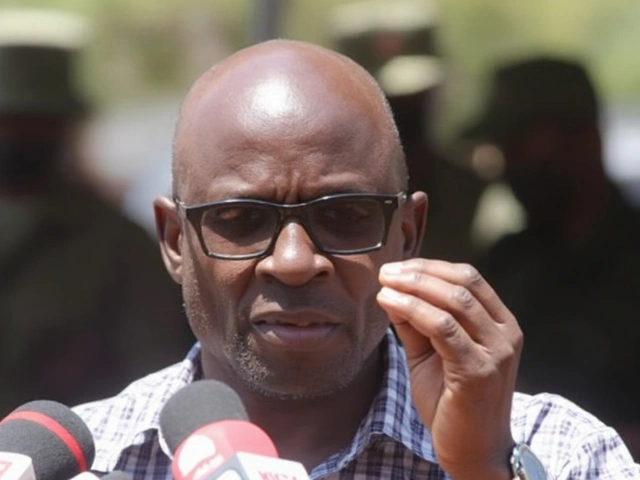SASSA Appeal: Your Quick Guide to Challenging Grant Decisions
When dealing with SASSA appeal, the formal request to overturn a denied or reduced social grant decision by the South African Social Security Agency. Also known as grant reconsideration, it gives claimants a legal path to recover their benefits. The process hinges on understanding SASSA, the government body that administers social security payments in South Africa and the role of legal aid, free or low‑cost assistance for eligible applicants who need help navigating the appeal. A SASSA appeal requires clear evidence, tight deadlines, and often the support of a qualified advisor.
Key Steps in the Appeal Process
First, you must receive the official denial letter. That letter kicks off the timeline – you have 30 days to submit an appeal. Gather proof of eligibility such as birth certificates, bank statements, and medical reports. Then fill out the SASSA appeal form, attach the documents, and send it to the nearest SASSA office or upload it via their online portal. Once submitted, SASSA reviews the case and either reinstates the grant, adjusts the amount, or upholds the denial.
If the decision stays unchanged, the next semantic link appears: judicial review, a court‑based procedure that examines whether SASSA followed proper legal steps can be pursued. This step often involves filing a notice of intention to approach the High Court within 90 days of the final denial. Legal aid can represent you in this stage, increasing the chance of a favorable outcome.
Most claimants overlook two practical tips. One, keep copies of every document you send – SASSA may request the same papers again. Two, track all communication dates; the timeline is a legal requirement, and missing a deadline can void your entire appeal. By treating the appeal as a project with milestones, you reduce stress and improve chances of success.
Understanding who benefits from a SASSA appeal helps tailor the approach. Older adults relying on old‑age pensions, caregivers receiving disability grants, and households dependent on child support grants each face unique eligibility criteria. For example, a child support grant appeal often hinges on school attendance records, while a disability grant may need additional medical assessments. Recognising these nuances lets you focus on the right evidence.
Another related entity is the Department of Social Development, the ministry that oversees SASSA and provides policy guidance for social security programs. When a grant is denied, the department may issue policy clarifications that affect how appeals are judged. Staying up‑to‑date with those updates can give you an edge, especially if recent changes broaden eligibility.
Many people assume the appeal is a one‑off request, but the system actually supports a series of reviews. If the first appeal is rejected, you can request a secondary review, and if that fails, move to judicial review. Each layer adds a new set of criteria and opportunities. Think of it as a ladder: the first rung is the internal SASSA review, the second is the external administrative review, and the top rung is the court‑based judicial review.
In practice, the most common stumbling block is incomplete documentation. SASSA will reject an appeal that lacks any required proof, no matter how compelling the story. To avoid this, ask a legal aid officer to run a checklist before you submit. They can flag missing items such as recent utility bills (proof of residence) or updated medical certificates. A well‑packed appeal speeds up processing and reduces back‑and‑forth queries.
Finally, remember that a successful SASSA appeal does more than restore payments—it restores dignity. Access to consistent social grants can mean stable housing, food security, and better health outcomes for millions of South Africans. By following the steps, using legal aid, and knowing when to seek judicial review, you empower yourself or a loved one to reclaim those essential benefits. Below you’ll find a curated list of articles that dive deeper into each stage, share real‑world stories, and offer templates you can adapt for your own appeal.

How to Appeal a Declined R370 SRD Grant – Step‑by‑Step Guide from SASSA
SASSA has released a clear, step‑by‑step process for appealing rejected R370 Social Relief of Distress (SRD) grants. Beneficiaries can use the online portal, submit supporting documents, and have their case reviewed by the Independent Tribunal for Social Assistance Appeals (ITSAA) within 30‑90 days. Successful appeals trigger SMS notifications; unsolved cases may be taken to the High Court. The guide warns against re‑applying and encourages use of the formal appeal route.




